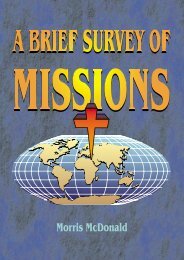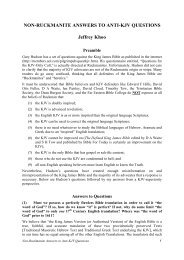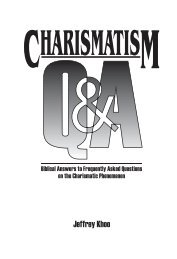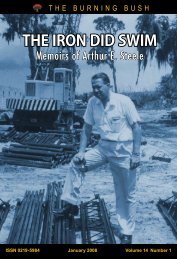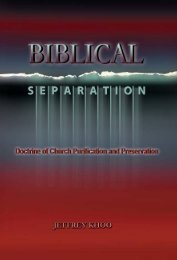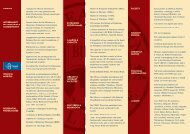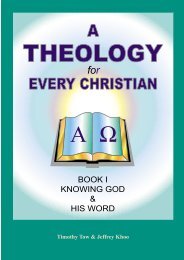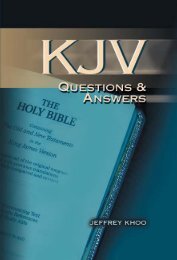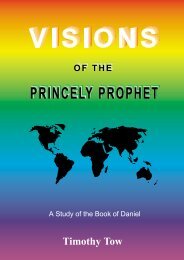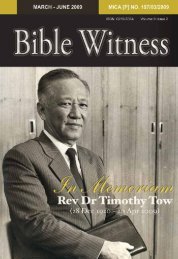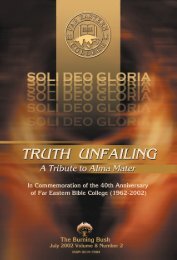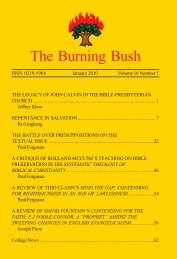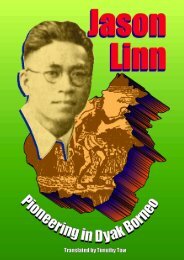Biblical Separation Defended - Far Eastern Bible College
Biblical Separation Defended - Far Eastern Bible College
Biblical Separation Defended - Far Eastern Bible College
- No tags were found...
You also want an ePaper? Increase the reach of your titles
YUMPU automatically turns print PDFs into web optimized ePapers that Google loves.
fact that the Lord’s purpose in teaching mankind was to set their conductaright in the sight of God and to set their theology aright in the light ofHis person and work and the entire compass of God’s dealings withman. Dr. Ferm’s statement causes us to miss the point that Christ wasvitally concerned with conduct and theology, and when He did notinquire of the people “to whom” He went to minister, it was primarilybecause all of the lost are presumed to be incorrect in both conduct andtheology as in fact they are, and they are in need of complete instructionin both of these vital areas. The children of God “to whom” He went tominister were not inquired of because they in their true belief andpractice of Judaism and its one true God displayed their orthodoxy ofbelief and their uprightness of life with regard to the Old Testament. Tothese He taught the new light and they saw it and were glad!However, is it true that he did not inquire into the conduct ortheology of those “with whom” he came to minister? His disciples reallywere His students and assistants at once. The entire ministry of theSavior toward them was to set their conduct and theology aright so thatthey could teach others primarily after His resurrection! Except forJudas Iscariot, who will be discussed shortly, did not Christ pickorthodox, though not faultless, Jewish men to be His disciples? WitnessPeter’s declaration when in Acts 10 the Lord commands him to “Killand eat,” of the unclean animals upon the heavenly sheet (Acts 10:10-13). Peter says, “Not so, Lord: for I have never eaten any thing that iscommon or unclean” (Acts 10:14) . Except for Judas Iscariot, there is nohint in the New Testament that any of the twelve were “liberal Jews”who doubted the Mosaic authorship of the Pentateuch, who thought thatthe J Document was a vestige of an ancient folklore or who believed thatTrito-Isaiah completed the Book of Isaiah.With regard to Judas, the study of which alone could occupy morethan one doctoral dissertation, after Christ announced His betrayal byone of the twelve, they each “began every one of them to say unto him,Lord is it I?” (Matt. 26:22). This shows that the other eleven did notnecessarily suspect that the one trusted with the moneybag was a traitor,thus informing the readers of the New Testament that Judas’ outwardprofession was orthodox, and that only the Lord knew that he was a tareamong the wheat. The solution of the quandary seems to lie in the fact64



